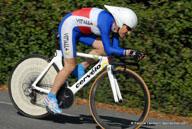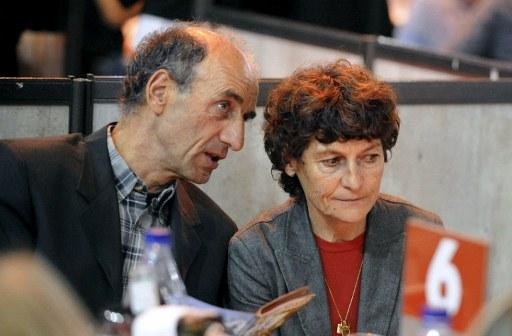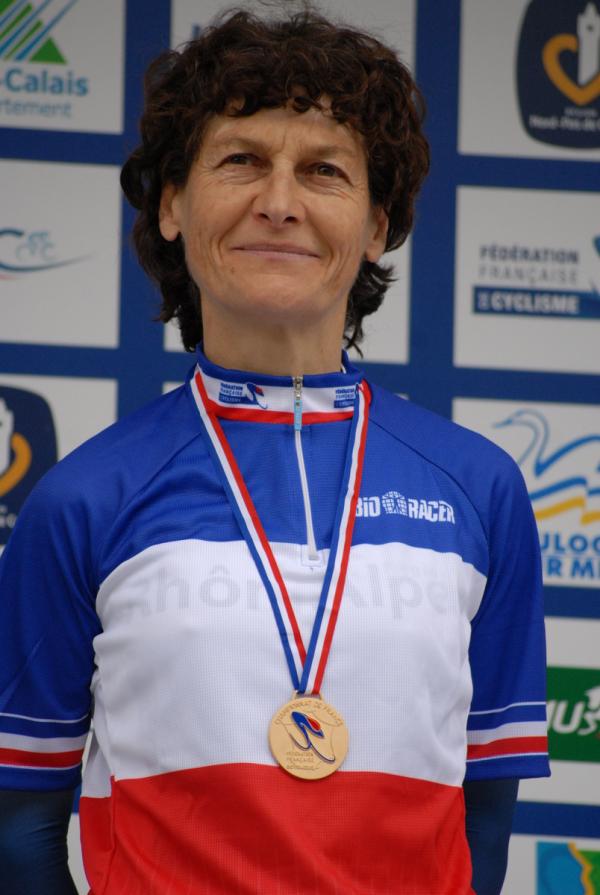Jeannie Longo verdict imminent
FFC to to reveal outcome of her case against French anti-doping agency



The verdict from the French Cycling Federation (FFC) in the case of French cycling icon Jeannie Longo is fast approaching with a deadline for a decision set for no later than November 23. Longo is accused of 'no shows' in the anti-doping tests run by the national French agency, the AFLD. If the cyclist is cleared, it would mean a harsh defeat for the credibility of the latest rules and set a legal precedent that athletes accused of 'no show' could use again in the future.
While Longo didn't attend the FFC's disciplinary hearing on Tuesday, her two lawyers were present, with both criticising the AFLD for using 'unfair and illegal' methods.
The 53-year-old cyclist is accused of reaching the limit of three missed anti-doping tests out of competition (the "no shows") in a period of less than 18 months: the 5th of May 2010, the 25th of October 2010 and the 20th of June 2011.
Longo has been part of a 400 to 500 athlete-group, targeted by the AFLD, with the support of some international federations. The athletes use the same programme as the cyclists do with the UCI: they give notice of their schedule three months in advance, in one hour blocks, from 6am to 9pm, and a location where they are available for an anti-doping test.
Longo was technically not part of this 'target group' however as her lawyers protest. They are citing an AFLD rule, decided last May, which states that an athlete who belongs to this group one year automatically stays in the program the year after. It didn't seem to take into account that the duration is more than two years. Longo seems to have joined the program in 2008 while her third 'no show' was in 2011. Her lawyers say this last missed test is illegal and are calling on the French Federation to clear Longo of charges. They consider it's 'a legal monstrosity in term of substantive law' to maintain an athlete in a 'target group' with no end limit.
Bruno Ravaz, one of the two Longo's lawyers, says his client "is not contesting the AFLD or the ADAMS system". He told Cyclingnews on Monday:
"Jeannie Longo is certainly not keen on the new technologies like mobile phones or computers, but she correctly uses the ADAMS via a registered letter".
Get The Leadout Newsletter
The latest race content, interviews, features, reviews and expert buying guides, direct to your inbox!
Ravaz added that Longo's case "might improve the conditions of anti-doping fight, as this recent law is really restrictive for the altheltes. It should notably respect the people's rights".
AFLD: No comment on a pending case
In an email sent to Cyclingnews, AFLD declined to comment: "The agency, which is likely to evoke the case at an ulterior stage of the process, has to avoid any prejudgement". This policy sticks with the arrival of the new president, Bruno Genevois, who succeeded the more outspoken Pierre Bordry.
At this point, it's impossible to know if the AFLD made a technical mistake by targeting Longo in 2011, or if they used another rule and are right to do this, or if the numerous current anti-doping laws are not clear enough and can get differently interpreted.
On Thursday Sports Minister David Douillet refused to support either side, telling L'Equipe: 'There is perhaps a mistake, a legal loophole or a different view of things. But lawyers have to decide.'
AFLD has already faced controversies about its methods, as in 2010, when the 'Union Nationale des Footballeurs Professionnels' appealed against their footballers being part of the 'target group' of the AFLD. They appealed to the National Constitution and the European Convention on Human Rights to contest 'the violation of a person's home' and the 'restriction of freedom'. Their request was denied last February by the State Council, the French administrative court of last resort.
Last Summer, AFLD's role was in the spotlight again, after rugby player Yoann Huguet was suspended and denied a place at the World Cup for three 'no shows'. He admitted his faults, however, and didn't blame the agency.
According to AFLD's reports, two athletes were convinced of "no shows" in 2009 and three in 2010.